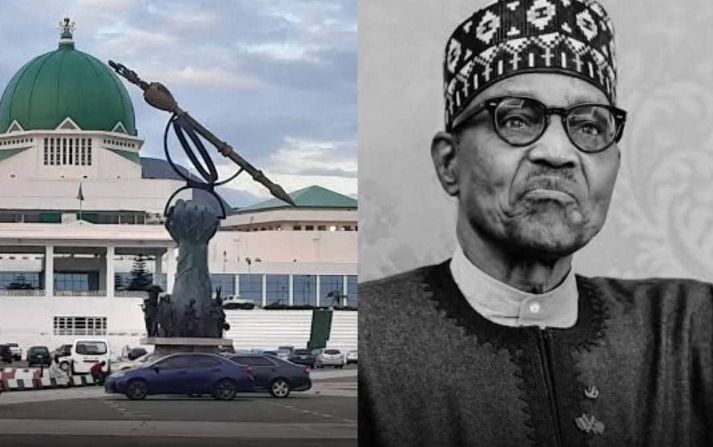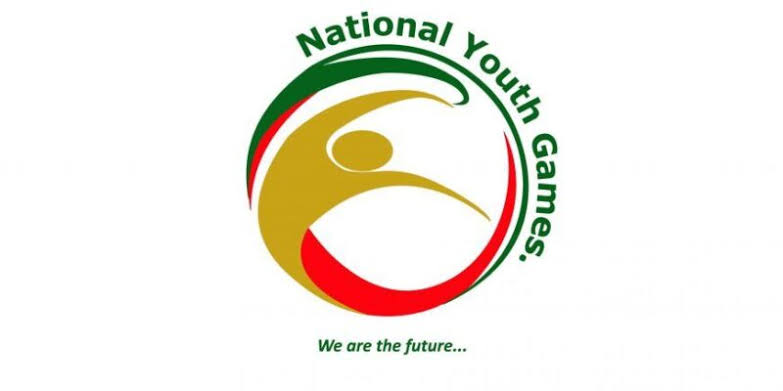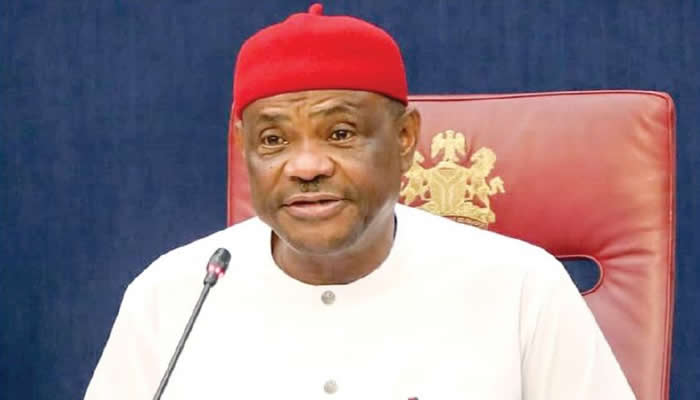
Nigeria’s National Assembly Halts Proceedings for One Week to Mourn Former President Buhari

In an emotional turn of events that has sent ripples through the political landscape of Nigeria, the National Assembly has officially suspended all legislative activities for seven days in a mark of solemn respect and national mourning for the late former President Muhammadu Buhari. The former leader, who served as Nigeria’s President from 2015 to 2023, passed away on Sunday, July 13, 2025, at the age of 82 in a clinic in London, United Kingdom. The news of his death, which broke on Sunday afternoon, prompted swift reactions from political figures, world leaders, and ordinary Nigerians, many of whom continue to grapple with the complex legacy he left behind.
The announcement of the suspension came through a statement issued on Monday by the Clerk to the National Assembly, Kamoru Ogunlana. In the official notice, the legislature acknowledged the former president’s contributions to the country and expressed deep sorrow over the loss. “The National Assembly of the Federal Republic of Nigeria mourns the passing of His Excellency, President Muhammadu Buhari, GCFR, former President and Commander-in-Chief of the Armed Forces, who died yesterday in London, United Kingdom,” Ogunlana wrote. According to insiders, both the Senate and the House of Representatives have ceased all committee meetings, hearings, and plenary sessions, a rare and telling pause in the nation's democratic operations that reflects the gravity of the moment.
Flags at the National Assembly complex in Abuja have been lowered to half-mast, a symbolic gesture of grief and respect. Lawmakers have been seen dressed in black and somber attire, while condolence registers have been opened in various sections of the complex for members of parliament, staff, and the public to pen heartfelt messages. The suspension of legislative duties is expected to last until Sunday, July 20, after which both chambers will reconvene with tributes and discussions on a formal state motion to honor Buhari’s memory.
The former president’s body is scheduled to be flown back to Nigeria from London later this week for Islamic burial rites in his hometown of Daura, Katsina State, in line with Muslim customs. Vice President Kashim Shettima, who touched down in London shortly after Buhari’s death, is expected to accompany the late president’s body back home. The Federal Government is reportedly working closely with the Buhari family to organize a state funeral that befits his status as a two-time leader of Nigeria—first as a military Head of State from 1983 to 1985, and then as a democratically elected president from 2015 to 2023.
The National Assembly’s decision has sparked reactions from across the political spectrum, with senators and representatives offering condolences and reflecting on Buhari’s impact on the country. Senate President Godswill Akpabio, in a brief statement, said, “President Buhari’s life was one of service, discipline, and conviction. While opinions on his policies may differ, his commitment to Nigeria cannot be questioned. The Senate joins the nation in mourning an icon of our political history.” Speaker of the House of Representatives, Tajudeen Abbas, also issued a statement saying, “President Buhari was a towering figure in Nigeria’s journey. We will honor him with our silence this week and with our voices when we return to celebrate his life.”
Beyond the halls of parliament, reactions to Buhari’s passing have been mixed, revealing the divided views on his administration’s legacy. Supporters remember him as a principled, incorruptible leader who sought to fight endemic corruption, reform Nigeria’s infrastructure, and improve national security. Critics, however, recall his presidency as a period marked by economic hardship, widespread insecurity, suppression of dissent, and a perceived lack of accountability. For many Nigerians, the mourning period is both a time of reflection and reckoning.
Social media platforms have been flooded with tributes, criticisms, and debates. Hashtags like #RIPBuhari, #BuhariLegacy, and #NationalMourning have trended on X (formerly Twitter) and Instagram, with thousands of users engaging in emotional posts, photos, and memories of his tenure. Some have shared pictures from his early days in the military, while others have posted moments from his inauguration in 2015, a time that symbolized a historic power shift in Nigerian politics.
In Daura, the atmosphere has become one of national pilgrimage. Locals have begun assembling in anticipation of the late president’s burial. Security has been beefed up around his residence, with military and police presence visible throughout the town. Reports indicate that thousands are expected to attend the funeral, including foreign dignitaries, heads of state, and members of the diplomatic corps.
The Buhari family, in a short statement released through the presidency, expressed gratitude for the outpouring of support and requested privacy as they prepare for his burial. “We are overwhelmed by the love and condolences extended to us in this difficult time. Baba lived for Nigeria. We will continue to uphold the values he held dear,” the family wrote.
While the legislative break is primarily a gesture of respect, it also brings into question the policy gaps and time-sensitive issues that may be delayed by the pause in activities. Budgetary approvals, committee investigations, and pending bills are all temporarily frozen. However, lawmakers insist the sacrifice is necessary to honor the contributions of a man who played such a central role in Nigeria’s political evolution.
The Federal Executive Council is also reportedly planning a special session next week to issue a presidential commendation and formally declare a national day of mourning. There are also discussions of naming national infrastructure, such as airports, highways, or government institutions, after Buhari in honor of his service to the nation.
As Nigeria enters this official week of mourning, the streets are filled with conversations—some nostalgic, others critical—but all centered on a man who undeniably shaped the course of the nation’s 21st-century politics. Whether celebrated or critiqued, Muhammadu Buhari’s name is now etched permanently into Nigeria’s political and historical archives.
In the days to come, all eyes will remain fixed on Abuja and Daura as the nation bids farewell to a man who, for better or worse, left an indelible mark on the country. The silence in the National Assembly chambers may be temporary, but it echoes a larger national pause—one filled with memories, questions, and the unmistakable weight of history.


